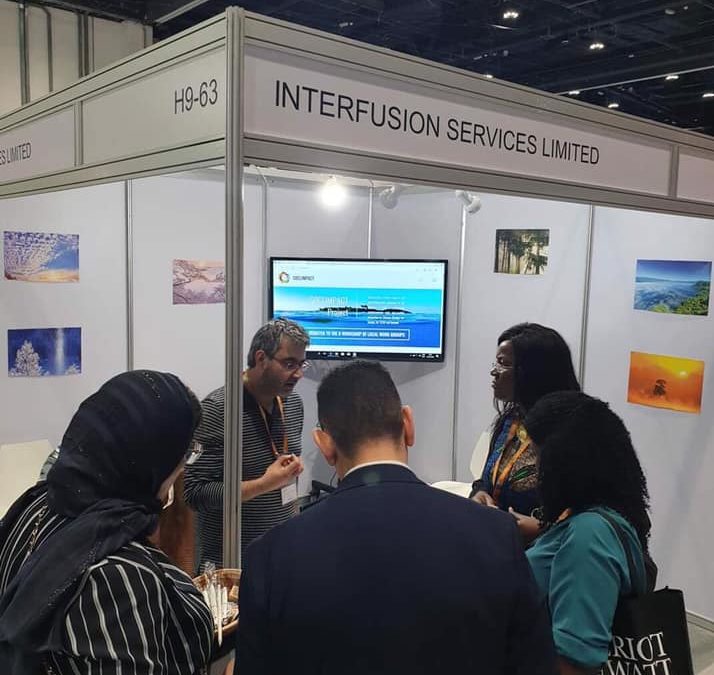Our partners from Interfusion Services took part in the 10th Session of the World Urban Forum (WUF), which is organized and convened by the UN-Habitat. WUF10 was held in Abu Dhabi (UAE) between 8-13 February 2020 and was dedicated to addressing rapid urbanization and its impact on communities, cities, economies, climate change and policies.
More than 13000 attendees from 168 countries met to discuss how to link research initiatives and smart solutions to current perspectives, including culture, innovation, and environmental sustainability. The majority of the attendees were high-level officials and decision makers from both developing and developed countries. Representing Interfusion Services was CEO and Research Director Haris Neophytou, who was able to demonstrate the SOCLIMPACT project by presenting its objectives, activities, findings and expected results to the forum’s attendees. Interestingly, Interfusion Services was one of the very few SMEs selected to feature as an exhibitor at the Forum.
Talks with visitors at their booth focused on explaining the project and its objectives in terms of the effects of Climate Change on EU islands considering their particular set of vulnerabilities and our aim to facilitate the climate-related policy decision making process for stakeholders regarding the Blue Economy with downscaled valuable information about the various environmental and socioeconomic impacts of Climate Change.
Our partner was also able to showcase some of the impact chains of each Blue Economy sector resulting from WP3, explaining how the climate hazards, exposure and vulnerability contribute towards the risk of each specific case demonstrated. Furthermore, a brief description of the work packages was provided for those wanting additional information on the research activities we have (and planned to have) carried out in the project.
Also, they were able to present to the attendees the various achievements and results obtained including, among others, the setting-up of sector modelling teams and local working groups. Most importantly, they were able to discuss our anticipated results with participants. These involved climate-related results (for instance, the comparison of risk between islands and the comparison of different risks per island and/or sector), economic-related results (such as economic valuation and economic impact), and policy-related results (for example, the island reports and the REIS platform).
Feedback and interest from participants varied based on their activities and fields of application. Some visitors were particularly interested in the climate-related aspect of the project as they were more concerned with aspects of Climate Change impact modelling. For example, strong interest for the results of SOCLIMPACT came from participants who were interested in dealing with areas of high coastal eutrophication, such as Senegal and Peru. Other visitors were more keen on the idea of having an all-encompassing support tool to help stakeholders configure proper policies regarding Climate Change with emphasis on scenario risk assessment and island comparison abilities of our approach. Interested visitors were not only from local governments, but also from international organizations, such as the UN-Habitat, the UNDP and the World Bank, who all saw the significance of working with governments, as well as local and non-state stakeholders, for the purpose of promoting environmental sustainability and to mitigate future disaster risks and the effects of Climate Change by investing not only financial resources, but also necessary human and technical resources.


